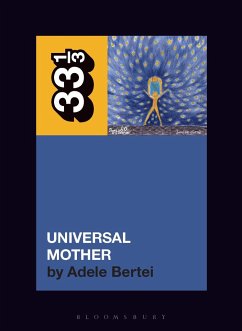With Universal Mother, Sinead O'Connor explores childhood trauma and her experiences as a woman, mother, target of scorn, and ultimate phoenix.
Released in the winter of 1994, Universal Mother was the first recorded work from O'Connor since her duo of protests in 1992 (Saturday Night Live, Madison Square Garden). The sadistic blowback she faced for publicly outing the child abuse of the Catholic Church and its cover-up would have destroyed most. Where Sinead might go next, or if she'd ever record again, was the question. It's a testament to her integrity and extraordinary courage that she was able to resurrect with this extraordinary album.
The album takes us on a deeply personal, yet universal journey of womanhood, from the archetypal bad mother to the good and the kind. A feminist statement from Germaine Greer sets the tone, followed by O'Connor letting loose a storm of rage against her abusive mother in "Fire on Bablyon"-a salvo so explosive, it need notbe repeated. Other than a song called "Red Football" and a call-out of the truth behind the Irish potato famine, O'Connor is not interested in rage or revenge. With Universal Mother, she offers us a tender, evocative collection of grief and empathy in song. Her miraculous voice is the vessel-the broken, sacred voice of Mother Ireland.
Released in the winter of 1994, Universal Mother was the first recorded work from O'Connor since her duo of protests in 1992 (Saturday Night Live, Madison Square Garden). The sadistic blowback she faced for publicly outing the child abuse of the Catholic Church and its cover-up would have destroyed most. Where Sinead might go next, or if she'd ever record again, was the question. It's a testament to her integrity and extraordinary courage that she was able to resurrect with this extraordinary album.
The album takes us on a deeply personal, yet universal journey of womanhood, from the archetypal bad mother to the good and the kind. A feminist statement from Germaine Greer sets the tone, followed by O'Connor letting loose a storm of rage against her abusive mother in "Fire on Bablyon"-a salvo so explosive, it need notbe repeated. Other than a song called "Red Football" and a call-out of the truth behind the Irish potato famine, O'Connor is not interested in rage or revenge. With Universal Mother, she offers us a tender, evocative collection of grief and empathy in song. Her miraculous voice is the vessel-the broken, sacred voice of Mother Ireland.








